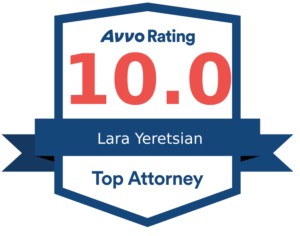Summer is winding down, but there’s still plenty of fun to be had in southern California. As such, the many end-of-summer festivals, concerts and other happenings around the San Fernando Valley (not to mention the upcoming Los Angeles County Fair in nearby Pomona) could prompt increased DUI enforcement, especially as Labor Day Weekend approaches.
One enforcement tool often seen around major holidays are DUI checkpoints. Though fairly common nowadays, many people still have questions when it comes sobriety checkpoints. Here are some answers.
Are DUI checkpoints legal?
Yes, though many still question their constitutionality. For a long time, sobriety checkpoints were considered illegal, because it was argued they violated drivers’ Fourth Amendment rights to unreasonable search and seizure. In 1990, the U.S. Supreme Court ruled that DUI checkpoints did not violate citizens’ rights if they were conducted appropriately. It left the definition of “appropriately” up to individual states.
The California Supreme Court adopted “functional guidelines” law enforcement agencies must abide by when conducting DUI checkpoints. According to these guidelines, officers must:
- Pick neutral criteria for pulling over cars, like pulling over all the trucks or blue cars, ahead of time to avoid biased screening
- Put safety first so that traffic can flow into and out of the checkpoint with minimal interruption, even if someone is pulled over for suspected impaired driving
- Avoid unnecessary delays when looking for signs of intoxication
- Conduct checkpoints at strategic points and for an appropriate length of time
- Identify themselves as legitimate police officers, which is often achieved by having officers in uniform and parking several marked squad cars in and around the checkpoint
- Give the public advanced notice of when and where a checkpoint will occur
- Adhere to the checkpoint plan and schedule approved ahead of time by supervising officers
Where do checkpoints happen?
According to the LAPD’s website, DUI checkpoints are often placed in areas around the metro area with high collision rates or frequent DUI arrests. Unlike some states, California requires police departments to announce when and where DUI checkpoints will occur, usually through their websites and/or local news outlets.
Can I avoid a DUI checkpoint without penalty?
Yes, but you must follow all normal traffic rules. DUI checkpoints are often clearly marked in advance, so drivers may avoid them by taking side streets or performing legal U-turns with no problem. Officers generally are not allowed to pursue or pull over someone for legally avoiding a DUI checkpoint.
What happens if I get arrested at a DUI checkpoint?
As “administrative inspections,” sobriety checkpoints waive officers’ responsibility to have probable cause to pull someone over. That said, officers still need probable cause to believe you are driving while impaired to arrest you. In this regard, being pulled over for DUI and being stopped at a DUI checkpoint are no different. If officers did not have reasonable suspicion to believe that you were intoxicated, improperly administered field sobriety tests or did not inform you of your rights, you could use these violations as defenses in your DUI case.




